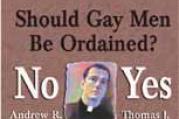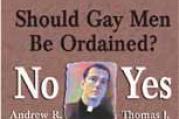Click here if you don’t see subscription options



U.S. Bishops Oppose Pre-Emptive, Unilateral Force Against Iraq
Any pre-emptive, unilateral use of military force to overthrow the government of Iraq cannot be justified at this time, the U.S. bishops told President Bush. The bishops urged Bush to step back from the brink of war and help lead the world to act together to fashion an effective global response to Iraq’s threats. In a letter to Bush, the bishops used Catholic just-war criteria to argue that unilateral strikes against Iraq would differ from the use of force against Afghanistan, which was part of a broader war against terrorism in response to attacks on the United States on Sept. 11, 2001.
Given the precedents and risks involved, we find it difficult to justify extending the war on terrorism to Iraq, absent clear and adequate evidence of Iraqi involvement in the attacks of Sept. 11 or of an imminent attack of a grave nature, the bishops said. The letter, dated Sept. 13 of this year and released in Washington on Sept. 17, was signed by Bishop Wilton D. Gregory of Belleville, Ill., president of the U.S. bishops’ conference, on behalf of the bishops’ administrative committee.
In the bishops’ letter, Bishop Gregory said the Catechism of the Catholic Church limits the just-war criterion of just cause to cases in which the damage inflicted by the aggressor on the nation or community of nations is lasting, grave and certain. He asked: Is there clear and adequate evidence of a direct connection between Iraq and the attacks of Sept. 11 or clear and adequate evidence of an imminent attack of a grave nature?... Is it wise to dramatically expand traditional moral and legal limits on just cause to include preventive or pre-emptive uses of military force to overthrow threatening regimes or to deal with the proliferation of weapons of mass destruction? Should not a distinction be made between efforts to change unacceptable behavior of a government and efforts to end that government’s existence? He said the moral credibility of force depends on legitimate authority, and as such, decisions of such gravity require compliance with U.S. Constitutional imperatives, broad consensus within our own nation, and some form of international sanction, preferably by the U.N. Security Council.
He added that war against Iraq could result in dangerous and unpredictable effects upon Iraqi civilians and Middle East stability, in violation of the criteria of the probability of success and proportionality. Would...force succeed in thwarting serious threats or, instead, provoke the very kind of attacks that it is intended to prevent? he wrote. How would another war in Iraq impact the civilian population, in the short and long term? How many more innocent people would suffer and die, or be left without homes, without basic necessities, without work?
Would the United States and international community commit to the arduous, long-term task of ensuring a just peace or would a post-Saddam [Hussein] Iraq continue to be plagued by civil conflict and repression and continue to serve as a destabilizing force in the region? he asked. Would war against Iraq detract from our responsibility to help build a just and stable order in Afghanistan and undermine the broader coalition against terrorism?
Nearly Half of Americans Unchurched, Census Finds
Just over half of all Americans have organizational ties to a religious body, but nearly as many remain without a church home, according to the results of a religious census conducted every 10 years. The study, Religious Congregations and Membership in the United States: 2000, was released on Sept. 18 by the Association of Statisticians of American Religious Bodies and the Glenmary Research Center. The data showed that 141.4 million Americans50.2 percent of the total U.S. population of 281.4 millionwere associated in the year 2000 with one of the 149 religious bodies participating in the study, which for the first time included Muslims and some other non-Christian groups in its latest totals. Ten years ago, when the study was called Churches and Church Membership in the United States: 1990, about 55 percent of the U.S. population were affiliated with a religious congregation.
At 62 million, Catholics were the largest single denomination represented in the United States in 2000, although Protestants grouped together were more numerous at 66 million. Catholics also experienced one of the largest increases in membership, 16.2 percent. Only the Church of Jesus Christ of Latter-day Saints (19.3 percent), Christian Churches and Churches of Christ (18.6 percent) and Assemblies of God (18.5 percent) had larger increases since 1990. Most mainline Protestant denominations experienced declines.
The data for the study was gathered not by the U.S. Census Bureau, which dropped its question on religion in the 1950s over concerns about separation of church and state, but by the religious organizations themselves. Some groups, such as Jehovahs Witnesses, do not want to participate in the census and therefore are not counted. Some -- such as Buddhists, Hindus and certain Orthodox and black Baptist churches -- only provided information on the number of congregations, not the number of adherents.
The report found:
66 million Protestants in 222,000 congregations.







